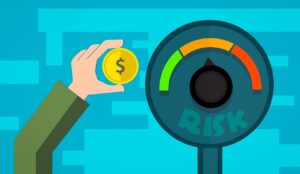
Financial distress is highly common. Often, it occurs when unexpected money problems arise or ongoing challenges start making it increasingly difficult to make ends meet. At times, a simple lack of proper planning could be responsible. Even with solid planning, financially difficult events like divorces or unemployment can wreak havoc on your finances. Fortunately, regardless of the reason, it’s possible to move forward. Here’s a look at how to deal with financial distress.
How to Deal with Financial Distress
Identify the Root Cause
Before you can start moving forward, you need to identify the source of your financial distress. This means examining the situation to look beyond the basics. For example, simply knowing that your income isn’t enough to cover your expenses may not be sufficient if you want to solve the situation. You need to determine why you’re falling short, how long that shortfall will remain an issue, and if there are any patterns or financial moves you’re making that are causing the situation to become more challenging.
Ultimately, you need to determine precisely what about where you stand is causing discomfort. Are you turning to credit cards to handle basic expenses because you don’t have enough income? Were your debt payments once manageable, but the end of an introductory APR or special promotion is now causing problems? Did an adjustable APR cause your required payment to become too challenging to cover? Are rising food prices throwing off your budget?
By asking questions like those above, you can figure out why you’re experiencing financial distress. Once you know, it’s easier to use a targeted strategy to move forward.
Determine Your Priorities
When you’re dealing with a challenging financial situation, spending time outlining your priorities is a must. This is especially true if you currently don’t have enough income to handle all of your obligations, but it’s valuable for anyone experiencing financial distress.
For those who can’t afford all of their bills, spend time identifying the ones you simply can’t let fall behind. Generally, that includes housing, utilities, transportation, groceries, and similar must-haves that ensure your survival and are necessary to keep earning an income.
By doing that, you can see how much the essentials are costing every month. If there are opportunities to cut back in these areas, that’s potentially wise. However, if you’re already in low-cost housing based on your location, don’t have an expensive vehicle or use public transit, and have a barebones grocery budget that you’re sticking with, you’ll know exactly how much the essentials cost.
After that, you can review your remaining expenses to determine which ones are more critical than others. While it’s again wise to reduce your other bills as much as possible, cutting back wherever the opportunity arises, it also helps you see where a sacrifice can occur. Then, if you need to miss a payment, you’re ensuring that the critical bills are covered first, allowing you to choose a less-crucial one to skip.
For those who can pay all of their bills and those who can’t, this exercise helps you see what matters to you most. Then, you can choose costs that aren’t as vital in your eyes for drastic cost-cutting. Essentially, it ensures that any short-term sacrifices are in areas that cause you the least amount of discomfort, letting you prioritize your spending based on what matters to you.
Cutback and Create a New Budget
After determining your priorities, it’s time to identify appropriate cutbacks and create a new budget. As mentioned above, work to scale back spending in all lower-priority areas where reductions are possible. Usually, this starts with lifestyle adjustments that aren’t connected to essentials. Reducing eating out and entertainment spending are both solid starting points, but it’s also wise to examine other areas where you may be able to find savings.
Once you finish reducing costs where you can, it’s time to create your new budget. List your expenses based on your priorities and allocate your income to them. As you work down the list, identify the point where your costs exceed your income if that occurs. Then, you can determine how much you’re short.
If you’re not short, assess how much money you have remaining. After that, determine if you can direct those funds to areas that result in less financial stress. For example, building an emergency fund could give you peace of mind. Similarly, reducing your credit card debt may relieve some anxiety.
Speak with Your Creditors
If you know that you won’t be able to make a scheduled debt payment, speak to your lender as soon as possible. Many creditors have programs that assist those with challenging financial situations, allowing you to avoid – or limit the impact of – missed payments and similar issues.
Precisely what’s available varies by lender and your situation. In some cases, you might be eligible for forbearance, interest rate reductions, term extensions, or other adjustments that can reduce your financial stresses. Ultimately, you won’t know what’s available until you ask, and the sooner you find out, the easier it is to find suitable arrangements with one or all of your creditors while you work to get back on your feet.
Find Opportunities to Increase Your Income
While getting a second job or starting a side hustle can potentially add some stress, the extra income may make solving your financial concerns easier. If you’re currently employed, ask about overtime. If you’re performing well and haven’t seen a pay increase recently, you could also see if you’re eligible for a raise.
Otherwise, start exploring part-time jobs, freelancing, or gig opportunities. Generally, genuine part-time employment is the least risky. Otherwise, stick with other side hustles that have a reputation for being safe options, making it easier to avoid scams.
You could also sell household items you no longer need for a quick injection of funds. Whether it’s listing items online or holding a yard sale, it’s a way to earn a bit from things you own but don’t have a clear reason to keep. Just make sure that you remain security minded if you sell online, only agreeing to meet buyers in safe locations like police department parking lots.
Get Outside Help
Getting outside help can reduce feelings of financial distress in many ways, primarily depending on the approach you use. Speaking with trusted loved ones or a counselor could give you an outlet for your concerns. Plus, you might get advice that can make dealing with any stress or anxiety easier.
If you’re not able to make ends meet and your financial situation seems insurmountable, turning to a credit counseling organization could bring some relief. They can provide advice to move you toward financial recovery, and they may be able to arrange a debt management plan to simplify paying down your debts.
Just make sure you choose a reputable nonprofit credit counseling organization that offers the service, taking time to research it carefully, as there are scams operating in this area. Looking for options through the National Foundation for Credit Counseling or the Financial Counseling Association of America is typically a good starting point.
It’s also wise to look for community services or nonprofits that may offer financial or others types of support to those in need. States typically have agencies dedicated to helping low-income individuals, and there are many nonprofits that operate programs that provide various types of assistance. Again, just make sure to research them carefully, as there are scams that masquerade as charities.
Track Your Progress
In many cases, seeing that your efforts are leading to positive results can alleviate stress and help keep you motivated. Without appropriate tracking, you may not realize that your approach is working. As a result, it’s wise to monitor your progress toward your various financial goals and give yourself some kudos every time you get closer to the finish line.
Tracking how your financial situation changes also lets you know if a strategy that you thought would work isn’t making the difference you expected. Plus, monitoring your spending allows you to identify budget leaks you didn’t notice previously. As a result, it’s far easier to take quick corrective action, making it easier to get on the right track and ensure you’ll make appropriate progress in time.
Do you have any other tips to help someone deal with financial distress? Have you tried some of the options above and want to tell others how they impacted your financial anxiety or stress levels? Share your thoughts in the comments below.
Read More:
- What Causes People to Have So Much Anxiety Over Finances
- How to Ensure Your Budget Is Working for You
- Is Lifestyle Creep Ruining Your Financial Future?







